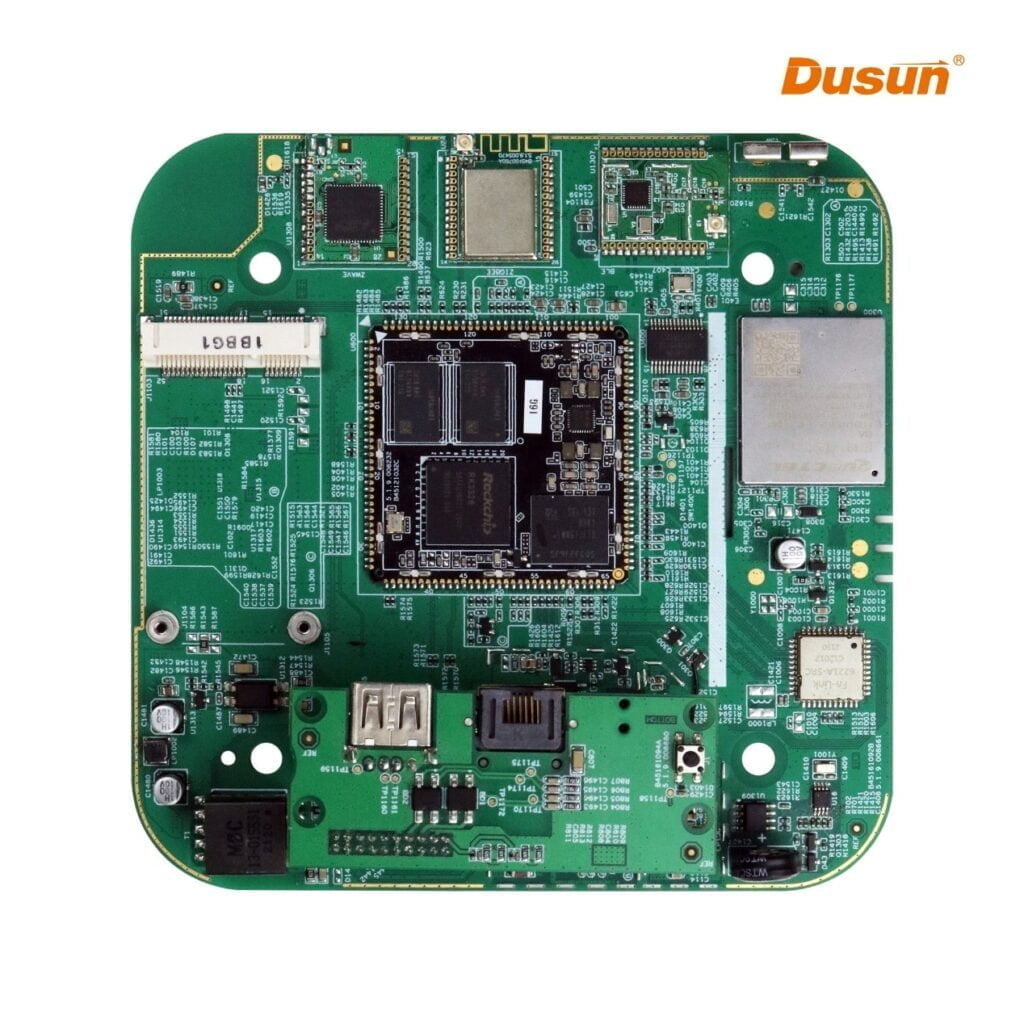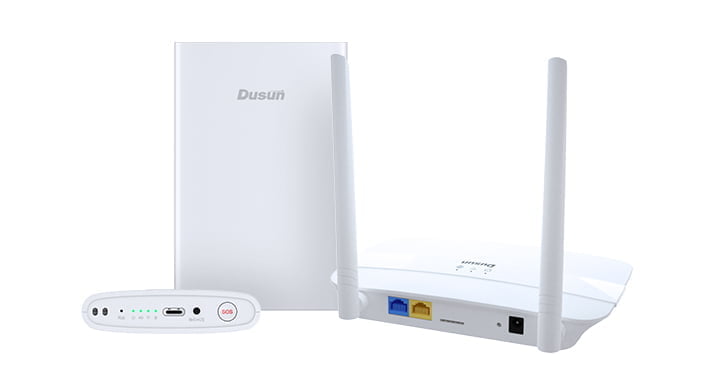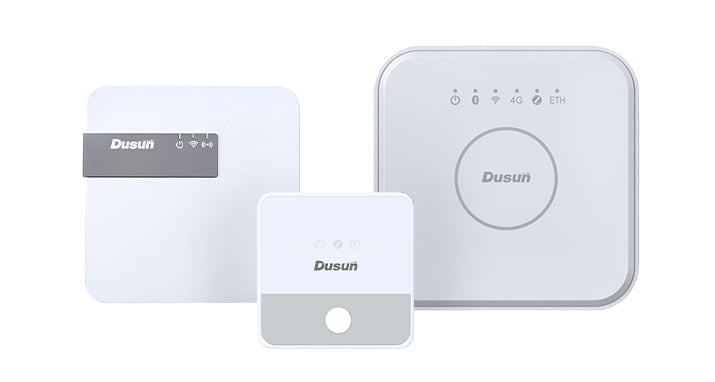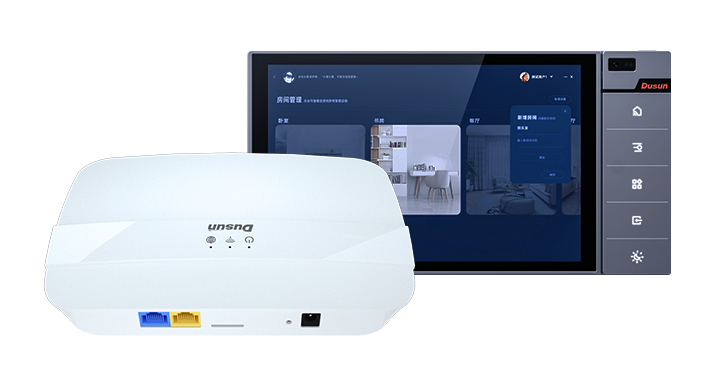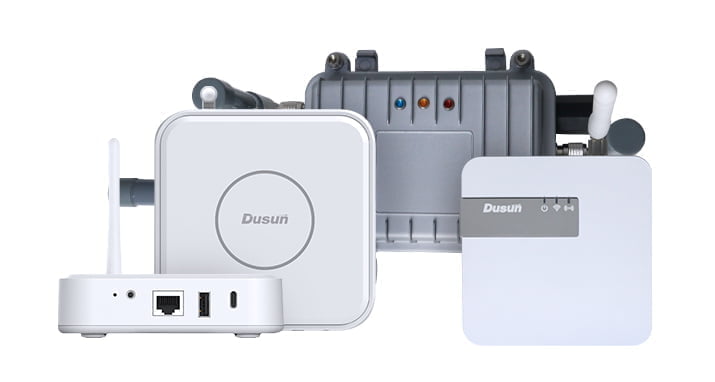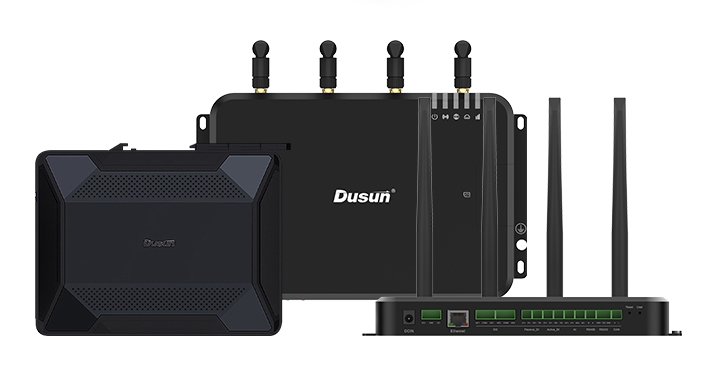Save time, effort, and risk with DusunIoT System on Modules based on various powerful SoC in a small form factor, complete with a ready-to-run Linux-based real-time OS, validated drivers, and productive development.
What is SoM (System-on-Module)?
A System On Module (SoM) is a single physical embedded module integrated into a system function that contains core components including processor cores, communication interfaces, and memory blocks, which may be plugged into a carrier board for the embedded system. It refers to a computer or system bundled into a single module. By simply picking an alternative SoM module from the same pin-compatibility family, the soM-based design allows more scalability.
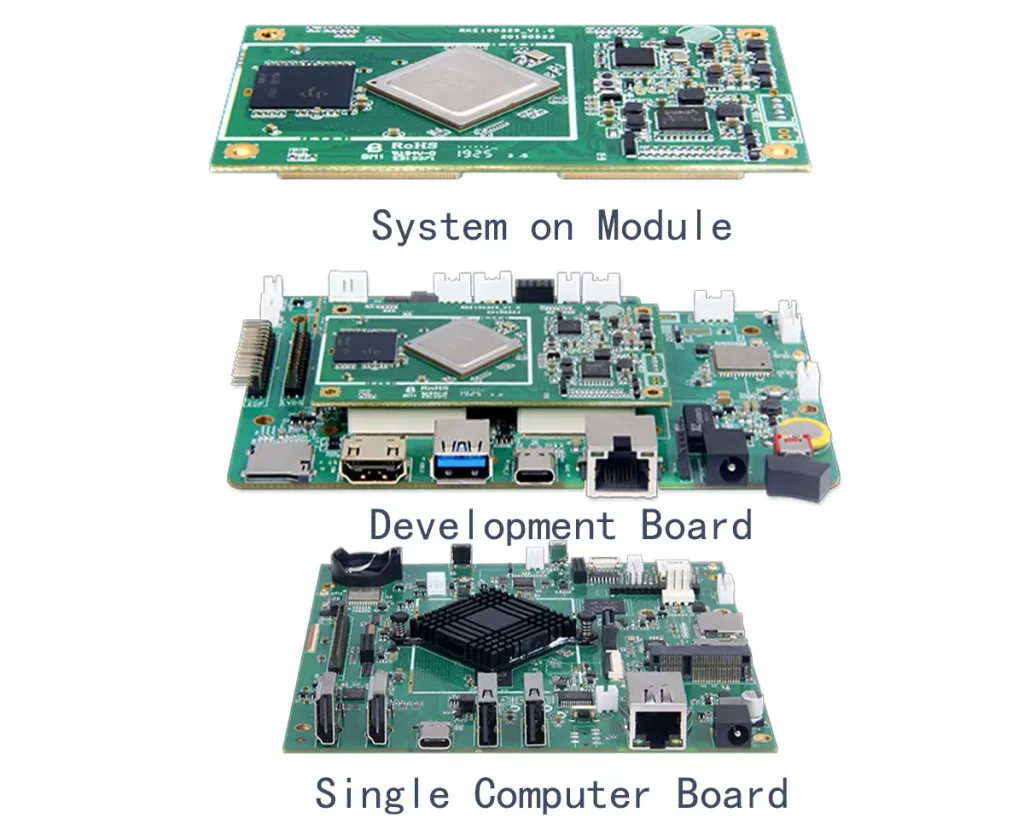
The SoM can be replaced or improved without replacing the carrier board. SoM offers a plug-and-play benefit. The SoM and carrier board supply the entire system; they typically incorporate the display, connection, GPIO, and other subsystems in a single computer module.
System on Module Diagram Example:


Why Choose System on Modules?
SOM enables developers to achieve design breakthroughs that reduce not only time to market but also costs. Developing an embedded system can be a time-consuming process that necessitates the design and fabrication of custom circuit boards. SOM reduces the number of steps required to complete a procedure. Simply select a SOM that meets your needs and integrate it into the end system, and you’re ready to go.
The modular design not only enables high-volume deployments but also simplifies product lifecycle management and lowers bill of materials (BOM) costs. SOM is worth investigating whether you are interested in software, hardware, or even AI development.
Edge computing can be used by software developers to process data locally and without latency. SOM does not necessitate extensive hardware knowledge and provides a comfortable and intuitive design environment. SOM’s easy-to-configure, highly flexible sensors will appeal to software developers working on vision applications. To save design time, the best SOMs includes built-in drivers and other software.
Hardware developers must move as quickly as possible to production, focusing limited resources on tasks with the most significant impact. They get the performance and flexibility of Field Programmable Gate Arrays (FPGAs) without the difficulties of PCB design and integration with SOMs. This enables them to complete projects on time and within budget.
AI developers require systems that provide efficient, high-performance performance without requiring them to be hardware experts. Fortunately, thanks to pre-built applications from system providers on the best modules, they can select a SOM that provides the computing power they require while retaining the flexibility to easily obtain AI models.
Where can SoM be applied?
IoT Gateway
When large-scale IoT gateway products must be listed as soon as possible, it is recommended to use SoM, depending on the project’s progress. Engineers can reduce time-to-market by starting projects with the most potent SoM modules and then adapting or expanding the SoM based on end-product requirements.
Dusun IoT’s Smart Gateway is built on a diverse range of System on Modules (SoMs) and System on Chips (SoCs) from various vendors, such as Rockchip, NXP, and Nordic. This provides IoT Gateway development with a versatile and convenient platform for creating and maintaining products across multiple industries and applications.
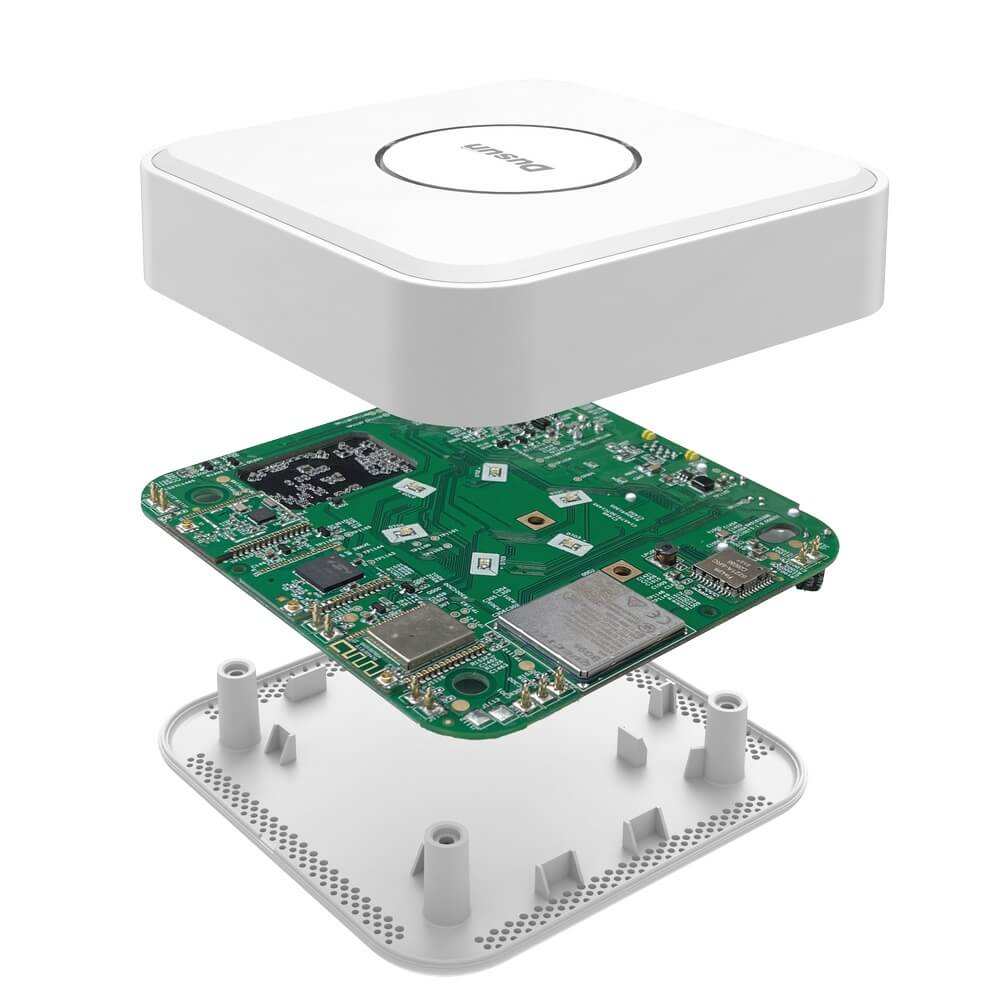
Security camera
The cutting-edge security camera system fully utilizes the advantages of video analysis, and SOM has contributed. Video analytics-enabled security cameras use machine learning to classify and understand the transactions they see, providing an accurate stream of data in real-time. This would not be possible without edge computing and without cameras and other devices that analyze information on-site.

Image Source: www.cnet.com
Machine vision
The modern economy relies on machine vision for everything from inventory inspection to signature recognition to defect detection. Machine vision requires embedded systems that can both analyze data in the field and provide configurable sensor capabilities. SOM helps developers leverage machine vision at scale while keeping costs low.

Image Source: cognex.com
Smart City
Smart cities use ubiquitous sensors to collect data to provide decision makers with the in-depth information they need to keep communities functional and alive. SOM primarily powers these sensors, helping city officials keep track of everything from utilities to traffic in real-time without missing a single nuance.
What factors need to be considered when choosing the right SoM?
Performance/processing power
It is critical to understand the need for an embedded application’s processing power. A small-scale SOM is usually sufficient for IoT edge devices, as opposed to an AI-based edge device where the application requires sufficient processing power to do the job.
Power consumption
When designing an embedded system, power consumption and heat produced by the system must be considered. One of the most important criteria in embedded designs is power consumption. A system designed to be connected to a power source, such as mains electricity, can usually ignore power consumption constraints, whereas a mobile design (or one connected to an unreliable power source) may be entirely reliant on power management.
Hardware constraints
The number of peripherals and the constraints associated with them is also important considerations when selecting a SOM. Hardware developers must understand which peripherals, such as 4G, GPS, card readers, and so on, will be present on the carrier board before selecting a SOM.
Software compatibility
Because both Intel and ARM are market leaders in the processor market, comparing software availability and toolchains is difficult. ARM-based devices have the advantage of running mobile operating systems such as Android and Linux. Intel-based devices have the advantage of being able to run virtually any operating system that can be run on a standard desktop PC, including Windows and Linux.
OS emphasis
Android/Windows/Linux: Operating systems are critical in the development of smart devices. Building SDKs and supporting multiple hardware variants are heavily reliant on how we manage the BSP (board support package) used to run the system. Available peripheral drivers and module bring-ups are critical factors in selecting the best fit operating system for the embedded system.
Durability
The design team should consider the SoM’s lifetime, as manufacturers typically support a product for a set period of time. Because the product is partially dependent on a specific SoM, SoM must be included in obsolescence management criteria.
Cost
One of the most important factors for embedded design teams is the budget for building the IoT or smart device, as it affects the final cost of the product. It goes without saying that decision-makers should keep the cost of SoM in mind when preparing Bills of Materials (BOM).
Final Thought on System on Module
The embedded system development will move toward SoMs. The examples given above are just a tiny sample of the numerous applications available. Home automation is a top priority for many people, especially during the pandemic, and the majority of these embedded devices are made with SoM.
For effective productization, Dusun IoT offers its own line of SoM modules that come with a full software package that includes device drivers and supports several operating systems. Dusun IoT’s SoM may be tailored to meet the needs of product development and supports the SDKs of many platforms. Our system-level modular services and solutions enable customers to start developing their software before it is manufactured and help with quick marketing.
System on Module FAQs
What are the benefits of System on Module?
Following are several benefits of System on Module:
- Saves time: It takes far less time to build a product based on an SoM than to design a complete system from the start.
- Development cost: A system on module significantly reduces the development cost of developing an embedded system.
- Simplicity: One can use an SoM and spend the rest of the time focusing on the personality of your product and taking advantage of the complexity. Hardware developers can obtain the performance and flexibility of an FPGA with a SOM without having to deal with the challenges of PCB design and integration.
What is the Difference between SoM and SoC?
System on Module (SoM) may come with an onboard SoC (System on Chip) and is one level higher than an SoC, but not fully functional as a single-board computer. The SOM will typically contain peripheral functionality integrated into the microprocessor SOC.
What is the Difference between SBC and SOM?
SBCs provide a ready-to-use embedded development platform for the creation of end products. SBC reduces development costs and technical risks while accelerating time-to-market. However, a System on Module (SoM) is a better option for building embedded products. Its modular design offers better flexibility, allows more scalability, and significantly decrease the development difficulty and time.
This article talks about the differences between Single Board Computer & System on Module, aiming to help your IoT project progress.
How to Design a PCB for a System on Module?
Every system-on-module is designed to connect to another board (typically referred to as the carrier board or main board) via a connector. This connection can be made in three possible ways:
- With mezzanine connectors on the back side of the SOM
- By placing castellated holes on the SOM and soldering directly to the main board
- Using an edge connector with exposed pins lined along the edge of the SOM
SOMs typically need to support a large number of high-speed signals in several interfaces, so the board must be designed using high-speed PCB design best practices. Standard computing and peripheral interfaces like USB and Ethernet are examples of typical interfaces found on an SOM. There may also be MIPI protocols included in SOMs that will interface with a display or camera.
Why use Linux support System on Module?
In the industrial automation, medical device, telecom/datacom, military, and aerospace industries, Linux is a popular open-source operating system. As an alternative to proprietary operating systems, it is the operating system of choice for many CPU (Central Processing Unit) architectures. Systems typically come with a Linux kernel, a Linux file system, and a boot-loader (most frequently Das U-Boot). The benefits of using embedded Linux system on module include licensing cost advantages, flexibility of source code access, general familiarity, a stable kernel, and availability of a variety of applications and tools. Learn more about Linux IoT here.







